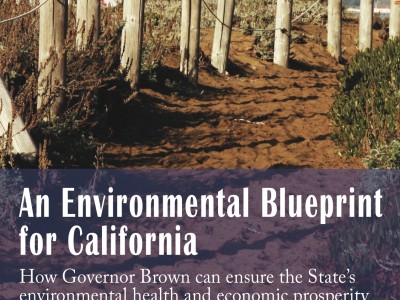Land Use
Saving Redevelopment In California
As Rick chronicled, California Governor Jerry Brown has pushed for the elimination of redevelopment agencies to help close the state’s budget gap. While Rick alluded to the mismanagement problems that plague some redevelopment agencies, most advocates for infill development view redevelopment as critical for revitalizing neighborhoods and creating more walkable, transit-friendly communities. Without the upfront …
Continue reading “Saving Redevelopment In California”
CONTINUE READINGCalifornia’s Delta Stewardship Council Gets Down to Business
Today California’s Delta Stewardship Council begins its deliberations on a Delta Plan that promises to be a big part of the answer to one of that state’s most pressing environmental questions: can California’s Delta be saved? Creation of the Delta Stewardship Council was a key element of landmark 2009 California legislation designed to address the …
Continue reading “California’s Delta Stewardship Council Gets Down to Business”
CONTINUE READINGA New Thought on Smart Growth
The Public Policy Institute of California just released its new report on SB 375, California’s smart growth law. I’m still working my way through it, and at the beginning, it seems pretty boilerplate. For example, it notes that three things California can do to reduce emissions are “Higher-density development, particularly in areas well-served by transit; …
Continue reading “A New Thought on Smart Growth”
CONTINUE READINGCalifornia’s Redevelopment Wars
California’s political leaders are currently struggling with the monumental challenge of finding ways to eliminate the state’s $25 billion budget deficit. Somewhat surprisingly, one of the most controversial deficit reduction proposals offered by newly-installed Governor Jerry Brown involves elimination of California’s 425 redevelopment agencies. Estimated savings: $3 billion per year. Such a reduction in state …
Continue reading “California’s Redevelopment Wars”
CONTINUE READINGJustice Brennan was not an Irishman
If you have access to The New Republic’s premium content online, or have a chance to buy the dead-tree version this week, make sure to do so. Justin Driver has written an outstanding essay on Justice William Brennan. It’s styled as a (positive) review of Seth Stern and Stephen Wermiel’s new full-length biography of Brennan (pictured …
Continue reading “Justice Brennan was not an Irishman”
CONTINUE READINGCalifornia Environmental Blueprint: Environmental monitoring & modeling
This post is the second in our ongoing series on our Environmental Blueprint for California. In our Blueprint, we recommended that Governor Brown establish an independent, statewide agency or council devoted to compilation, modeling, prediction and presentation of environmental quality data. I want to elaborate on what this agency might look like and why we believe …
Continue reading “California Environmental Blueprint: Environmental monitoring & modeling”
CONTINUE READINGA Roadmap for Sustainable Consumption
Individual consumption – including household heating and cooling as well as non-business transportation – creates roughly one-third of U.S. energy use and carbon emissions. It would feasible to reduce these emissions by twenty percent in a decade: there is a lot of low-hanging fruit yet to be picked. A range of individual actions, while seemingly …
Continue reading “A Roadmap for Sustainable Consumption”
CONTINUE READINGUCLA Law will host local government land use symposium on February 11
UCLA Law’s Evan Frankel Environmental Law and Policy Program is hosting a symposium about local government land use law on February 11, 2011. This event, Local Agencies on the Cutting Edge – Emerging Challenges to Local Land Use Authority: Proposition 26, the Public Trust Doctrine, RLUIPA, and Takings Law, will focus on issues of practical …
Continue reading “UCLA Law will host local government land use symposium on February 11”
CONTINUE READINGHigh Speed Rail To…Corcoran?
The saga of high speed rail in California continues. Since state voters approved a bond measure in 2008 to authorize construction of a system linking north and south, the California High Speed Rail Authority has faced lawsuits over its unfortunate planned route away from the population centers of the northern Central Valley, opposition from wealthy …
Continue reading “High Speed Rail To…Corcoran?”
CONTINUE READINGCommunity Planning: What Do People Want?
Gallup has published an interesting poll about the qualities that people value in communities. They conducted a poll to find out what made people feel attached to their communities. The top three on the list are: Social offerings are the top driver of attachment in 2010. . . . This includes the availability of arts …
Continue reading “Community Planning: What Do People Want?”
CONTINUE READING




